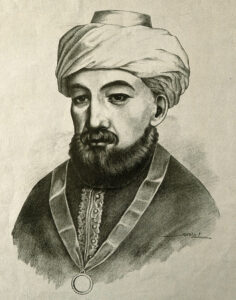The Golden Ladder of Charity

Victor Parachin
Our opportunities to give are endless. Consider these almost daily occurrences . . .a homeless person calls out as you pass, asking for some money . . . a young person goes from house to house in your neighbourhood selling items to raise money for his school band . . . your church sends a letter asking for a yearly pledge . . . the mail brings pleas from several worthy social and religious service agencies highlighting their desperate need for donations . . . someone you know has been unemployed for several months and could really use even a little financial assistance . . . a college student is struggling with tuition payments . . . a church agency operating a shoe-string budget, appeals to you for a contribution.
Just as the opportunities to give are numerous, so are the ways in which we respond. Some, upon learning of a need, open their hand, heart and chequebook. Others may give grudgingly or not at all. The bible commends the first group reminding us that “God loves a cheerful giver” (2 Corinthians 9:7, New International Version). Scripture is clear and consistent in its call on people of faith to respond generously and unhesitatingly whenever a need presents itself. Consider these verses: “Supply him (or her) liberally . . . Give to him as the Lord your God has blessed you.” (Deuteronomy 15:14) “Freely you have received, freely give.” (Matthew 10:8) “We have different gifts . . . if it is contributing to the needs of others, let him (or her) give generously.” (Romans 12:8) “It is more blessed to give than to receive.” (Acts 20:35)
Such scriptures offer a wonderful opportunity to examine our giving style by asking questions such as these:
• Am I a cheerful giver or a
grudging one?
• Do I give liberally or minimally?
• Do I give freely or am I hesitant in responding?
• Am I generous and magnanimous or am I tightfisted and miserly?
• Do I truly feel blessed whenever I give or is there resentment?

Rabbi Moses Maimonides (1135-1204)
The answer to such questions determines whether or not we put our whole heart into our giving. That examination of spirits helps ascertain whether our giving is truly sincere and from the heart or merely superficial, customary and expected. If you feel you want to grow as a giver, then allow yourself to be guided by the Golden Ladder of Charity. This ladder was formulated by Rabbi Moses Maimonides (1135-1204). During his time, Maimonides was a highly regarded Jewish philosopher, physician, astronomer and rabbi. Among his many spiritual and ethical teachings is this simply crafted Golden Ladder of Charity which outlines eight levels of giving. Read them carefully, pausing after reading each level and seek to determine the depth of your giving. Here is Maimonides ladder:
- The first and lowest degree is to give - but with reluctance or regret. This is the gift of the hand but not of the heart.
- The second is to give cheerfully, but not proportionately to the distress of the suffering (an example would be giving a few dollars to one homeless person you encounter but nothing to the second one you encounter).
- The third is to give cheerfully, and proportionately, but not until we are solicited.
- The fourth is to give cheerfully, proportionately, and even unsolicited; but to put it in the poor man’s hand, thereby exciting in him the painful emotion of shame.
- The fifth is to give charity in such a way that the distressed may receive the bounty and know their benefactor, without their being known to him. Such was the conduct of our ancestors, who used to tie up money in the hind-corners of their cloaks, so that the poor might tacit it unperceived.
- The sixth, which rises still higher, is to know the objects of our bounty, but remain unknown to them. Such was the conduct of those of our ancestors who used to convey their charitable gifts into people’s dwellings, taking care that their own persons should remain unknown.
- The seventh is still more meritorious, namely, to bestow charity in such a way that the benefactor may not know the relieved persons, nor they the name of their benefactor.
- The eighth and most meritorious of all is to anticipate charity by preventing poverty; namely, to assist the reduced brother either by a considerable gift, or loan of money, or by teaching him a trade, or by putting him in the way of business, so that he may earn an honest livelihood and not be forced to the dreadful alternative of holding up his hand for charity. This is the highest step and the summit of charity’s Golden Ladder.
 After reading and reflecting on the Golden Ladder of Charity, make the adjustments which are appropriate for yourself. Remember that what you are looking for is that unique combination of heart and head acting together in an authentic expression of the spirit. As that takes place, we grow as givers becoming people who give cheerfully, quickly and without hesitation.
After reading and reflecting on the Golden Ladder of Charity, make the adjustments which are appropriate for yourself. Remember that what you are looking for is that unique combination of heart and head acting together in an authentic expression of the spirit. As that takes place, we grow as givers becoming people who give cheerfully, quickly and without hesitation.
 Entries(RSS)
Entries(RSS)